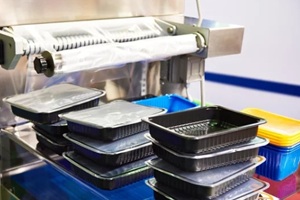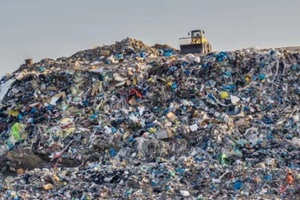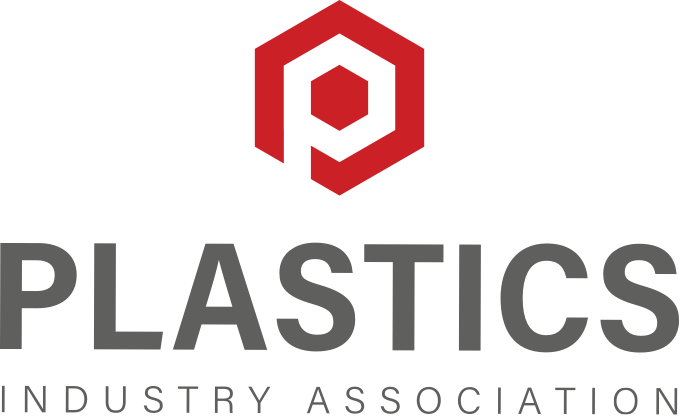January 6, 2025

Sustainable plastics are actively transforming the packaging industry as we know it, offering innovative solutions to one of today’s most pressing environmental challenges. With a growing consumer and resulting business demand for eco-friendly products, businesses are increasingly adopting plastic sustainability to reduce their environmental footprint.
The shift is much more than just another green trend—it’s an important step toward addressing the global plastic waste crisis through plastic sustainability and aligning with evolving consumer expectations and legislative demands.
The push for sustainable packaging has gained considerable momentum in recent years, largely due to heightened awareness of environmental concerns like pollution and waste. Consumers and businesses alike are recognizing the pressing urge to directly address the impact traditional packaging materials can have on the environment, particularly plastics.
Their growing awareness and resulting lifestyle changes have led to an increasing shift in consumer preferences toward plastic sustainability and products that actively minimize harm and potential impact on the planet.
As a result, businesses are continuing to adopt sustainable packaging solutions, not only to meet consumer demand but also to fulfill their corporate responsibility to the environment..
Consumer behavior is increasingly leaning toward plastic sustainability, with more individuals willing to pay extra for products packaged in eco-friendly materials. This ongoing shift is influencing companies to rethink their packaging strategies, aiming to align with consumer values while also reducing their environmental impact.
A 2023 global consumer survey found that 80% of participants are willing to pay more for products that are sustainably sourced, showcasing the increasing importance of plastic sustainability when it comes to purchasing decisions.
As this trend continues, businesses are recognizing that sustainable packaging isn’t just good for the environment; it’s also essential for staying competitive in a market where consumers are increasingly environmentally conscious.
New legislation plays an important role in actively advancing the adoption of sustainable packaging. As environmental concerns grow, government regulations are becoming more stringent to mitigate the impact of packaging materials, particularly plastics.
These laws are pushing businesses to rethink their packaging strategies and prioritize plastic sustainability to meet new standards and reduce environmental harm.

The “Break Free from Plastic Pollution” bill is a landmark piece of legislation that’s driving the shift toward sustainable packaging, and central to this bill is the concept of extended producer responsibility (EPR). This concept holds manufacturers and producers responsible for the entire lifecycle of their products, from initial creation to disposal.
This piece of legislation emphasizes the importance of reuse and recycling, aiming to reduce plastic waste by making sure that producers are responsible for the environmental impact of their packaging. The bill is designed to strictly enforce these responsibilities, encouraging companies to adopt more sustainable practices and materials and ultimately influencing the packaging industry’s approach to plastic sustainability.
The current legislative push is compelling businesses to adopt more sustainable plastic packaging solutions. This translates to companies being driven to innovate and invest in materials and practices to comply with new regulations and meet the growing expectations of consumers.
The shift has a positive impact, helping businesses align with regulatory requirements while also positioning them as leaders in sustainability, which is increasingly important in today’s market. The influence of such legislation is clear as more companies prioritize sustainable packaging to stay competitive and environmentally responsible.

Stay ahead of the curve in plastic recycling innovation. Join PLASTICS today for access to exclusive resources, industry insights, and the latest advancements to drive sustainability and business growth.
The debate between plastic and paper packaging continues to be a central issue in the push for sustainability. Both of these packaging materials offer distinct benefits and pose significant challenges, making it essential for businesses to carefully evaluate their full environmental impact before deciding which to use.
Paper packaging is often praised for its recyclability and biodegradability, making it an attractive option for those seeking environmentally friendly alternatives. Its ability to break down naturally is a significant advantage over plastic. However, this ability to break down also causes paper packaging to be more susceptible to the rigors of shipping and weather.
Additionally, the production of paper requires substantially more energy, and its heavier weight leads to increased transport emissions. These factors can diminish the overall environmental benefits of paper packaging, suggesting that while it is eco-friendly in certain aspects, it may not always be the most sustainable choice.

Plastic packaging, despite some negative public perception, offers several environmental advantages over its paper-based counterparts. While this may surprise some, plastic typically needs less energy to produce and is lighter than paper, resulting in lower transport emissions as a result. When considering the entire lifecycle, plastic can sometimes be the greener option, especially where reliable recycling infrastructure exists.
However, plastic’s environmental impact remains a concern, particularly due to disposal challenges and low recycling rates. The secret to maximizing plastic packaging’s benefits lies in improving recycling systems and increasing the use and lifespan of recycled materials.
With the packaging industry continuing to change, sustainable practices in plastic packaging are more important than ever. That’s exactly why staying updated on the latest developments in plastic sustainability is a must for businesses looking to reduce their environmental impact.
To learn more and become more informed, consider checking out our array of analyses and reports, our magazine, our newsroom, and even our blog. If you’re not currently an active member, consider joining today to stay informed and ahead of industry changes.
PLASTICS and the Future Leaders in Plastics (FLiP) Committee are devoted to supporting and encouraging the next generation of plastics leaders who will play a crucial role in the innovation, technology and future of the plastics industry. FLiP’s mission is to provide young professionals under the age of 40 the exposure, education and resources they need to build lifelong careers in plastics. Want to join? Want to get your employees involved? Email: flip@plasticsindustry.org